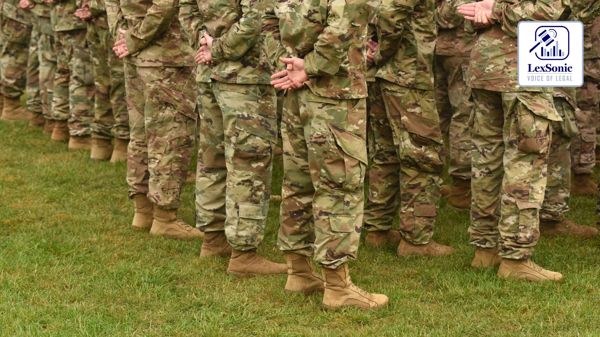Justice for the Widow: Legal Precedents and the Battle Casualty Entitlement.
03 December 2024
Civil Appeals >> Civil & Consumer Law | Armed Forces Tribunal >> Miscellaneous
In a significant judgment of Union of India & Others Vs Saroj Devi, the Supreme Court ruled in favor of the widow of late Naik Inderjeet Singh, a soldier of the Indian Army, who died while on duty in extreme climatic conditions near the Line of Control (LC). This ruling underscores the importance of recognizing the circumstances surrounding military service and the benefits entitled to soldiers’ families, particularly in the context of a battle casualty.
Factual Background:
The deceased, Naik Inderjeet Singh, was a member of the Indian Army, who served in Jammu and Kashmir and participated in an Area Domination Patrol in January 2013. During the patrol, which was launched from Manjit Main to Rangwar Post, Singh complained of breathlessness under extreme climatic conditions. His condition worsened, and despite efforts to evacuate him by air, the weather conditions made it impossible. Eventually, Singh was evacuated on foot to a nearby medical facility, where he was declared dead due to cardiopulmonary arrest.

Initially, Singh’s death was classified as a “battle casualty,” but later it was reclassified as a “physical casualty” attributable to military service. While his widow was granted all terminal benefits, including a special family pension, she was denied a Liberalised Family Pension (LFP), which prompted her to file an original application before the Armed Forces Tribunal (AFT).
The Tribunal's Decision:
The widow sought the quashing of the order denying her LFP and prayed for the payment of the pension with interest. The Tribunal, after considering the facts, directed that she be granted LFP along with an ex gratia lumpsum amount, payable in the event of a battle casualty. The decision was challenged by the appellants, leading to an appeal in the Supreme Court.
The Legal Arguments:
The appellants contended that LFP was governed by an order issued by the Ministry of Defence in January 2001. According to the order, LFP is applicable in cases where death occurs under specific circumstances, including enemy action or while on duty in war-like situations. The appellants argued that Singh’s death did not fall within these categories and was thus ineligible for LFP.
On the other hand, the respondent (the widow) maintained that Singh’s death should be treated as a “battle casualty” due to the extreme conditions he faced while on duty near the LC. Her claim was supported by the certificate issued by the Commanding Officer, which initially classified Singh’s death as a “battle casualty.”
Consideration of Submissions:
The Supreme Court examined the order from the Ministry of Defence, specifically focusing on the criteria for the award of LFP under categories D and E. The Court noted that while the appellants argued that Singh’s death did not fall within these categories, the specific facts of the case revealed that Singh was part of Operation Rakshak, stationed near the LC, and his death occurred due to illness induced by extreme climatic conditions.
The Court emphasized that Singh’s death, caused by illness in extreme conditions while serving near the LC, fell under the category of “battle casualty” as defined by the Army Order of 2003. This order recognized casualties that occurred due to natural calamities or illnesses related to working in harsh conditions on the international border or LC.
Court’s Ruling:
The Supreme Court ruled that the case of the deceased should indeed be classified as a “battle casualty,” as Singh’s death resulted from illness caused by extreme weather while on duty in a war-like zone. The Court further pointed out that the appellants' stance, which sought to exclude this case from the benefits of LFP, was unfair to the widow, who had already endured the loss of her husband.
The Court also distinguished the case from other precedents, noting that previous decisions like Kanchan Dua v. Union of India and Radhika Devi v. Union of India were based on different circumstances and could not be applied to this case.
In addition, the Court expressed its dissatisfaction with the appellants’ handling of the case, which had led to unnecessary litigation. The Court directed the appellants to implement the Tribunal’s judgment and grant the widow the LFP, along with the ex gratia payment, within three months. Furthermore, the appellants were ordered to pay Rs. 50,000 as costs to the respondent within two months.
Conclusion:
This ruling reaffirms the importance of treating military service-related deaths with the gravity they deserve, especially when they occur in challenging conditions like those experienced on the LC. The Supreme Court’s decision provides clarity on the eligibility for Liberalised Family Pension and emphasizes the need for compassion and timely action in such sensitive cases.
In the end, the widow’s battle for justice not only resulted in the financial support she was entitled to but also highlighted the significance of ensuring that soldiers’ families are not neglected after the ultimate sacrifice made in service to the nation.
